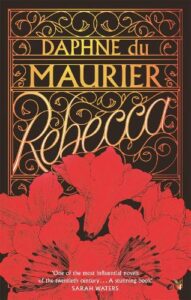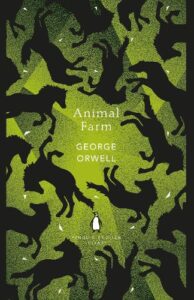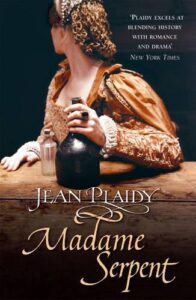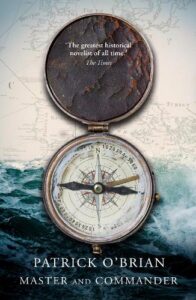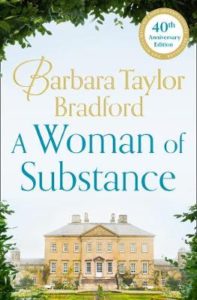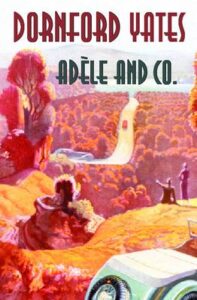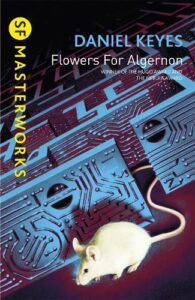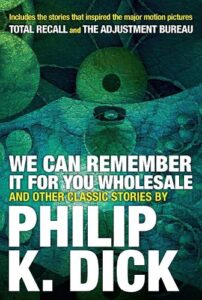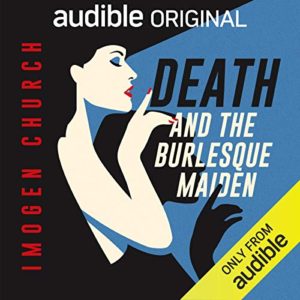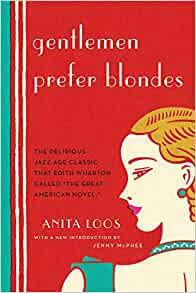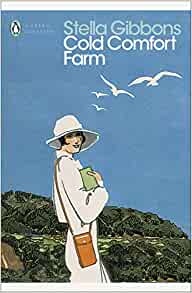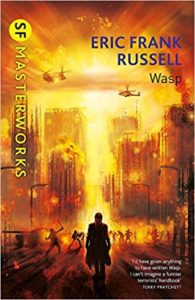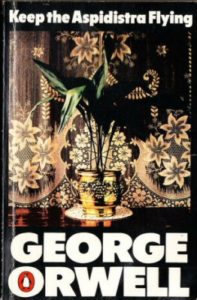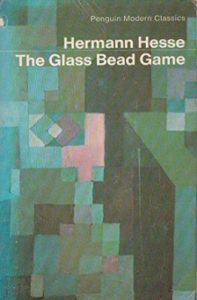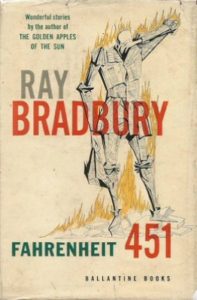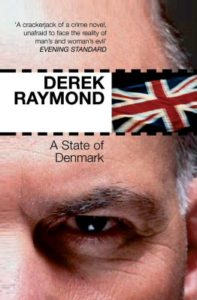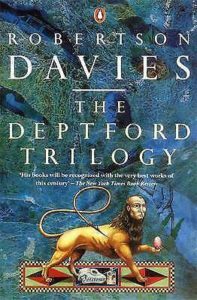Decades – Compiling the Ultimate Library with Judith O’Reilly
Welcome back to the Decades Library. It’s an ongoing quest to curate the ultimate collection of “unmissable” books and each week I invite a guest to join me and nominate some of their favouite books to my Decades Library.
The Library came into being back in January 2021 when I challenged debut author Sharon Bairden to put five of her favourite books into my new library. The shelves were bare and she could select ANY five books but she could only select one book per decade from five consecutive decades. Sharon made five brilliant selections (you can make use of the search function on the right of the page to check them out). The Decades Library was up and running. Next up was Dr Heather Martin (author of the definitive biography on Lee Child) who picked her five favourite books from a different five decades than Sharon used. That was 22 months ago and we haven’t looked back.
This week I am delighted to welcome Judith O’Reilly to the Decades Library. I am currently reading Sleep When You’re Dead which is the third in Judith’s excellent Michael North series (written under the name Jude O’Reilly). I have reviewed the first two books here on Grab This Book and you can expect a review of Sleep in due course (mini-spoiler…I am loving it).
Check out all Judith’s books here and if you haven’t encountered the Michael North books yet then you need to get onto Killing State immediately!
Time to pass the Decades Curator Hat to Judith and let her introduce her five recommended reads…
 Judith O’Reilly is the author of Wife in the North and A Year of Doing Good (both published by Viking Penguin, 2008 and 2013 respectively). Wife in the North reached number three in the UK bestsellers’ chart and was in the top ten for five weeks. It was also a top ten bestseller in Germany. It sold into ten countries, was serialised by The Sunday Times and the Daily Telegraph, was a BBC Radio 4 Book of the Week, and was based on Judith’s eponymous blog which was named as one of the top 100 blogs in the world by The Sunday Times. Judith’s blog is credited with kicking off the popularity of domestic blogging in the UK.
Judith O’Reilly is the author of Wife in the North and A Year of Doing Good (both published by Viking Penguin, 2008 and 2013 respectively). Wife in the North reached number three in the UK bestsellers’ chart and was in the top ten for five weeks. It was also a top ten bestseller in Germany. It sold into ten countries, was serialised by The Sunday Times and the Daily Telegraph, was a BBC Radio 4 Book of the Week, and was based on Judith’s eponymous blog which was named as one of the top 100 blogs in the world by The Sunday Times. Judith’s blog is credited with kicking off the popularity of domestic blogging in the UK.
Wife in the North and A Year of Doing Good were both non-fiction. Killing State is a commercial political thriller and Judith’s first novel. At least the first one she’s allowed to leave the house without her.
Judith is a former political producer with BBC 2’s Newsnight and ITN’s Channel 4 News, and a former education correspondent with The Sunday Times where she also covered politics, undercover reporting and general news. She still occasionally writes for The Sunday Times.
DECADES
Rebecca (1938) by Daphne Du Maurier
The pull of Rebecca is a strange one I always think. I remember reading it as a teenager waiting desperately to meet the elusive, charismatic and dead Rebecca. And, of course, you never do. Even though the book is named for her. I remember not being able to drag myself away from it, but also the intense frustration as I closed the covers and put it down. It may be the first novel that made me go back and re-read it – questioning exactly what it was I was reading. But that’s part of the genius. We feel the same fascination with this dead wife as our poor narrator. A narrator who doesn’t even get a name, poor dear. (I’m not counting Mrs de Winter. We all know there was only one Mrs de Winter!) It’s a book that’s never been out of print. For a reason. It’s brilliant. Even now when we read it knowing what Maxim did – the murder, what he did with the body, the fact in the long run he got away with it. I mean, what’s that about? A man murders his wife and we’re okay with that because she was a bitch? There is so much wrong with this picture. But nonetheless, we allow ourselves to be swept up in the gothic romance of it all. And such a simple premise – a dead wife, a new wife, a tragic accident that turns out to be a cover for murder. You make the dead wife compelling and the new wife obsessed. You set it an old house by the sea. Which allows for shipwrecks. There’s a costume ball. Mix in a little romance and a lot of guilt and jealousy and the desire for revenge. Ramp up the sinister and set it against a frisson of unspoken desires. Talking of which – enter Mrs Danvers! Even writing about ‘Danny’ makes me question whether I will ever manage to create any character as sinister as the housekeeper from Hell.
Animal Farm (1945) by George Orwell
I always associate Animal Farm with being 11 and in the first year of grammar school. We studied it. We took it apart and looked at it from every angle. It was a revelation for me. That you didn’t just read a book on your own in your bedroom, and enjoy the story. It was more than that. It was magic. Because the book meant something. It didn’t merely entertain you. It educated you. The writer had a purpose in the story telling. A political purpose moreover. Yes, it’s about animals who take over the farm, but it’s also about the Russian revolution and power. It’s a political allegory. It blew my mind. And you know what – I studied politics at university and then became a political correspondent and a political producer with Channel 4 News and Newsnight. I’m still a Labour party member today and track politics as if my life depended on it. (By the way, your life does depend on politics.) Is the book I read at 11 the reason why? I’d say it is undoubtedly part of it.
At 11 then, courtesy of George Orwell, I woke up to the realities of the haves and have nots, of revolution, of the totalitarian regime, of suffering. I wasn’t from a political family. But we listened to the news every day on the radio when my grocer dad came home from work and we sat down to a tea of Findus savoury mince pancakes and chips. I wasn’t from a political family but my dad got made redundant – twice. I wasn’t from a political family, but everything – as Orwell would tell you himself – is political.
Madame Serpent (1951) by Jean Plaidy
In Madame Serpent, Catherine de Medici is 14 and about to marry Henry of Orleans, second son of the King of France. Her husband however is in love with another woman. Catherine is humiliated and embittered by Henry’s treatment of her in favour of his mistress Diane de Poitiers. The stage is set for revenge.
I didn’t have books in my house aside from the Bible and the odd condensed Readers’ Digest passed on by an aunt. But I did go to the local library every fortnight and the school library. I also bought graphic novels the size of my hand from a kiosk in the bus station, and I bought second hand books from the bookstall in Leeds market which I passed through on my way home from school. For an avid reader who went through her library books faster than she could change them, it was a great system. Every time you brought the book back to the stall, you got half what you paid for it in exchange, which you promptly spent on books, which you’d return and get back half the money, and so it went on. It was this bookstall that introduced me to Jean Plaidy, Victoria Holt and Philippa Carr – all noms de plumes of Eleanor Hibbert. Madame Serpent is the first in a trilogy about Catherine de Medici. All of Plaidy’s works were rigorously researched and introduced the readers to history in an accessible and real way. I’ve always enjoyed history and the Jean Plaidy novels brought it alive. Not least in how they put women at the centre of history in a way I didn’t see reflected in the textbooks I studied at school.
Master and Commander (1969) Patrick O’Brian
There are two types of people in this world. Those who have read Patrick O’Brian and those who don’t know what they’re missing and should stop what they are doing immediately and go buy a copy. It doesn’t sound like a book that anyone other than a nautical history buff would love, but in Captain Jack Aubrey and ship’s doctor Stephen Maturin, we have one of the best tag teams in literature. Master and Commander is set during the Napoleonic wars and by the time you’ve read your way through the 20-strong series of Aubrey-Maturin books, you too could sale a sloop-of-war into battle against the damnable French. Aubrey is brave, Maturin is brilliant. Both men are honorable to the core and make my cut of guests I would most like to have to an imaginary dinner party (which also includes Raymond Chandler and Philip Marlowe by the way). Their vividness is due in part to O’Brian’s research into original sources such as official letters and logbooks from the time. Their humanity, intelligence and charm down to O’Brian himself.
A Woman of Substance (1979) Barbara Taylor Bradford.
I first read this book when I was 15 and was gripped by the grit, resilience and ambition of its feisty Yorkshire heroine. The tale of Emma Harte, a housemaid turned millionaire retail entrepreneur. A wronged woman who refused to be defined and judged by society. Emma Harte told a generation of women it was okay to want something better and to work to get it. The book is sweeping and glorious, and as her own website describes it, is “a triumphant novel of an unforgettable woman.” It’s a multi million pound juggernaut for a reason, involving illegitimacy, betrayal, great love, suicide, money, more betrayal, and revenge. Love it. I had tea with Taylor Bradford years ago in the Dorchester, having bid for the privilege in a literary auction. You know they say never meet your heroes. Totally not true. She was glorious. I said it was lonely being a writer. She corrected me and said it was a ‘solitary’ occupation. She was interested in all of us (I took two mates along) and when she inscribed a book for me wrote: “Judith, wishing you the best of luck with your writing career, Barbara T. Bradford.” I am 100% being buried with it. She’s 89, every now and then she auctions off her jewellery or Hermes handbags, if she ever auctions off her typewriters or pen collection, I am so in.
I have read Judith’s thoughts on Animal Farm three or four times over the last half hour. I loved reading the impact this book had – this is why I want people to read Decades each week. The thought of someone picking up a book they may not have read and having an experience akin to Judith’s is the dream.
I’d like to thank Judith again for taking time to make her selections. Five big, big books which I am delighted to add to the Decades Library shelves for others to enjoy.
DECADES WILL RETURN
